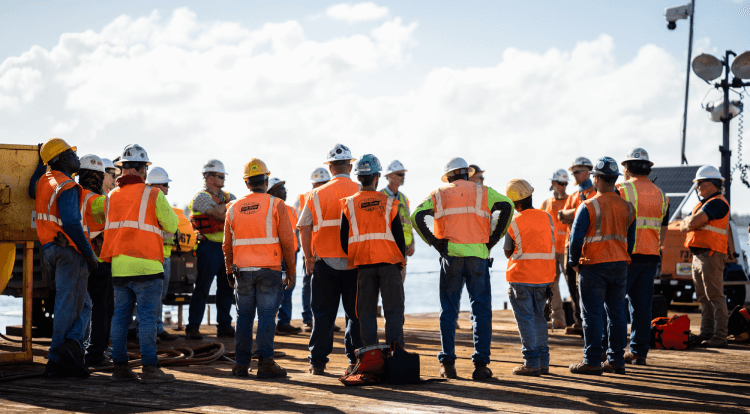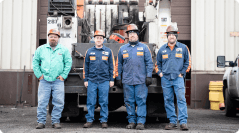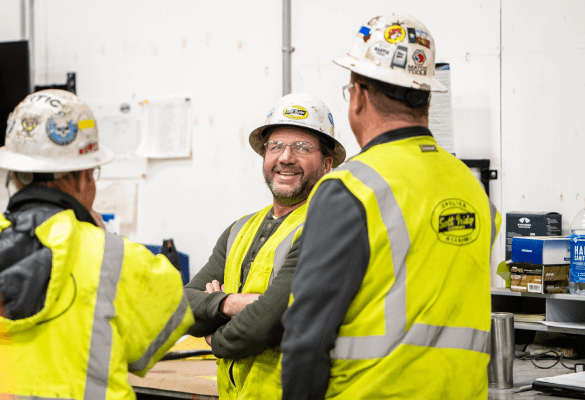Being A Good Loser
Written by Dave Turin • Reviewed by Laura Meyer
June 2, 2022
If there’s one piece of advice Dave Turin has after failure, it’s that you shouldn’t dwell on it.
When it comes to performance, letting a loss overwhelm you can inhibit you from benefiting from that failure. Football, in Dave’s mind, is the ultimate team sport. Sometimes in the game, an individual makes a mistake that they can quickly fix. But when the whole team screws up and loses the game, you’ve got to take a minute to figure out what happened and why and adjust your course accordingly.
Reflect
Reflecting on a loss is not the same as moping. You can sit around and cry, but with your head down, you won’t be ready for the next challenge coming down the line. Worse, the failure will have been wasted on you, because you won’t be able to take any lessons from it.
When you sit down and talk about the failure as a team, while maintaining a positive attitude, it gives you the opportunity to gain insight that you can apply to your next steps.
Analyze
Dave values failure and sees it as a teachable moment. One example taken from his own experience comes straight from the job site. Jason, who’d been operating the excavator, needed to do something else, so Dave took over. At the time, Dave jumped into the excavator and started loading the haul truck. After the haul truck was loaded, Dave started backing up the excavator according to the usual moves, and almost flipped the excavator over a five-foot drop that he hadn’t seen behind him.
Analyzing this mistake meant that the whole team stopped to talk about it. A big believer in the power of humility, Dave admitted to his team right off the bat that he made a big mistake by not doing his walk-around before jumping in the machine. “Holy smokes! It could have cost us a lot more than time and money!” Dave points out. But by addressing the problem as soon as it came up, the team was able to analyze it and take action.
Change
Arguably where the rubber meets the road, change is the action you take after a failure to make sure it doesn’t happen again. The first two steps—reflecting and analyzing your failure, are dead in the water unless you take action.
In the instance where Dave almost turned his excavator upside down, the action they took was to stop work, address the failure, and drive home the importance of equipment walkarounds so no one on the team ever does what Dave did again.
Born to Win
Our society doesn’t celebrate losing People love winning. It’s a win-win world. But how people handle loss is the real tell when it comes to their long-term success.
Some examples of success include Henry Ford, Bill Gates, and Paul Allen. Henry Ford failed twice in business before building one of the largest car companies in the world.
As for Bill Gates and Paul Allen, both dropped out of school before building successful businesses. And Dave doesn’t necessarily agree with their definition of success. For the Gold Rush team, success has a lot more to do with the well-being of the team over monetary gain.
87 Reasons to be Thankful
Dave recalls one year when his team only got 87 ounces of gold. Their goal had been to get 100 ounces of gold. Because he looks at success differently, Dave doesn't see it as a failure. “We built a team that stuck together, finished what we started, and prepared ourselves for the next season.”
Failure doesn’t have to be permanent. If you have the right attitude, failure can provide your team with their greatest opportunities to learn and grow.
Check out Dave's next lesson, How to be a Good Winner.
More about
Sand Cone Test for In-Place Density Testing Soil by Sieve - Minus #40 5 Heavy Equipment Maintenance TipsMeet the Expert
Dave Turin
DAVE TURIN is a civil engineer who embarked upon his pursuit for gold as part of the hit reality show GOLD RUSH and currently is the star of DAVE TURIN’S LOST MINE on Discovery Channel. Although Dave has worn many hats and operated various pieces of heavy equipment throughout ten seasons of gold mining, it was the extensive hours he spent bulldozing that acquired him the name “Dozer Dave”. Dave grew up in the foothills of the Mt. Hood wilderness in Oregon, where he cultivated a love for the outdoors while hunting and fishing. This is also where he began spearheading his family’s successful rock quarry business along with his father and three brothers. Dave has a desire to encourage young people to work hard, to resist giving up in the midst of adversity, and to be bold in trying new things. He feels the trades are a viable option for many and is a proponent of addressing the skills gap and labor shortages in that industry. Viewers of GOLD RUSH worldwide have witnessed Dave’s successes, failures, frustrations, persistence, and his ability to bounce back even stronger than before. Dave never shies away from a challenge. As a football enthusiast he has learned to tackle obstacles head on, using his experience and intelligence in the construction field to gain success. When Dave isn’t moving rocks and pursuing gold responsibly he enjoys spending time with his family and playing golf.















